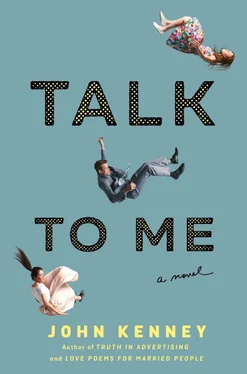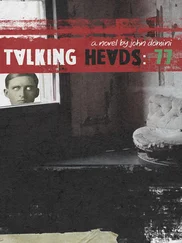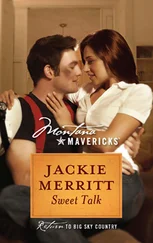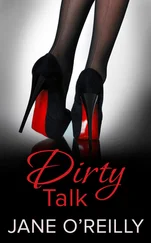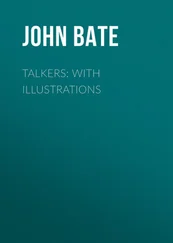What they did see was Ted’s rugged good looks (the exact phrase used by the network in a recent promo to offset the new twenty-nine-year-old anchor at a competing network, a former Calvin Klein underwear model who was stealing shares at an alarming rate). Square of jaw, ruddy complexion that looked like he’d spent the afternoon sailing, marvelous white teeth.
Natalia pulled out a can of hair spray and doused his head, putting a comb to his naked crown with all the subtlety of someone operating heavy machinery. Ted pulled away as if she’d just sneezed on him. Lou was watching this from the control room. Indeed, Lou had given Natalia the advice to use the spray and lots of it. Lou thought this was funny. Lou liked to mess with Ted on his birthday. The control room watched Ted prepare for a “Ted” moment. The girl seemed oblivious. Ted felt the adrenaline rush come, like a three-year-old out of the gate at Churchill Downs.
“Sorry, I thought you liked…” the girl said.
Something about her voice stopped him. She had an accent. He hadn’t heard it earlier. Strange. Ted felt he was good with accents, that he could place them. He’d traveled everywhere.
Ted took a deep breath, put his phone back under the desk.
“Russian?” Ted said confidently, hoping for a tone of false humility.
“Sorry?” Natalia said.
“You’re Russian,” Ted said, forcing a smile.
“Polish,” she said, as if Ted had just asked whether she’d ever been in prison.
“Oh… yes. Of course. Marvelous country,” Ted said.
They stared at each other, a too-long moment. Ted briefly toyed with giving a disquisition on the changes to Warsaw and Łódź, post–World War II, as well as the annual grain harvest estimates, to flaunt his intelligence (learned from a two-page briefing from the interns as well as the in-flight magazine that time he flew to Poland for the anniversary of the dockworker uprising).
Natalia appeared to be in her mid- or possibly late twenties. Pretty in a bland sort of way. Ted briefly wondered what she looked like naked. (Natalia, at almost the same moment, was thinking that Ted looked far older in person than on television and felt sad for him.) Though the reality was that she could have been a part-time yoga instructor wearing formfitting Lululemon pants and Ted wouldn’t have looked twice. His celibacy—initially a gift from Claire and, for a time, a partially enlarged prostate gland—was a subject he rarely gave voice to. It wasn’t merely his inability to maintain a marginal erection (a firmness Ted gauged as somewhere between a croissant and a stale brioche); the embarrassing truth was he’d lost interest in sex.
It didn’t help that his right testicle hurt. It had hurt for some time, beginning as a dull pain in his lower abdomen and continuing in a straight line down to the testicle itself. The more concerning symptom was a fierce pain on the rare occasions when he ejaculated. The first time it happened, as he built toward a climax, the pain increased until, at the point where the train left the station, he howled out loud, a sharp, sustained pain emanating from the ball itself. A quick Google search suggested cancer. But then, most Googled health searches seemed to suggest cancer. How would one even begin to broach this subject with another human being?
“Hey, Glen. See the game last night? Also, does your nut ever have a really sharp pain as you’re ejaculating?”
• • •
“Sixty seconds to air.” It was Sean, the first assistant director.
Natalia continued to try to touch up Ted’s hair. She wore a baggy sweater and scarf, perhaps because the studio was so cold, the way Ted liked it. Her lips were dry and cracked. She kept pulling them into her mouth, like a child concentrating. She didn’t know she was being watched. Ted thought of his daughter. The memory so sharp and fast it was physical, sending a flood of sadness mixing with his low simmering anger. The result made him sigh audibly.
“How’s the hair spray working out?” Lou said in Ted’s ear. He heard Larry and Phil, director and control room lead engineer, chuckle through Lou’s still-open mic.
“You’re a shithead,” Ted said.
Natalia looked up, wide-eyed.
“Not you,” Ted said to the girl, in a kinder voice. He pointed to his ear. “The voice… in my head…”
She forced a smile and nodded slowly, the way one does to an insane person or a relative one doesn’t really care for at the holidays. She had a job to do. She reached to comb his hair again. He pulled away again.
“Okay, that’s enough,” Ted said to Natalia. His tone. That Ted tone. Brusque, dismissive.
The girl was startled and apologized, which made Ted angrier, as he was the one at fault and he should be the one to apologize but he couldn’t quite seem to do it. She grabbed her bag of brushes and combs and hair spray and scurried off to a dark corner of the set.
He looked at the hard copy in front of him. It was largely decorative, as the teleprompter rarely went down anymore and if it did there was Lou, in his ear, and a team of people at the ready to feed him information. In the new world, by the time the sixty-plus-year-old audience tuned in, the twenty-two minutes and thirty seconds that Ted shared—the remainder being commercials—was ancient news. Who gave a flying fuck about the evening news? Bored travelers waiting on a delayed flight out of Denver International? People leafing through an old Sports Illustrated at a barbershop in Brooklyn? The elderly watching after an early supper in the common room in a palliative care facility?
All of these people had one thing in common. They trusted Ted. And that’s what made him valuable. They trusted his face and his voice and the words he said. You couldn’t manufacture it, though God knows the networks tried.
The network wanted a “show,” not a news broadcast. How else, the network marketers asked, can we compete against cable and digital, against the mindless-but-heavily-trafficked public bathroom of news-like pornography of the Huffington Post, BuzzFeed, Vox, TMZ, Perez Hilton, and a thousand others, of Suzanne Somers opening up about Barry Manilow’s gay wedding or an angry gorilla scaring the hell out of visitors at a Beijing zoo or the latest viral video of someone screaming at a police officer after a routine traffic stop, only to regret it too late, the shaming and bravery-through-anonymity comments crushing any social or valuable discourse? Photos of the latest twenty-one-year-old singer-actress-model in a bathing suit/her underwear/getting out of a limo in a too-short skirt. Tens of thousands of hits an hour, tweeted, forwarded, Facebooked, trending. An unstoppable cavalcade of digital shit flowing through America’s computers and iPhones and tablets and TVs every second of every day. How can we get more of that on the evening news? They wanted to know.
Now they urged Ted (he was actually contractually obligated, as long as his ratings remained sufficiently strong) to speak to advertisers at the up-fronts, in the spring, when the network announced its fall lineup. Two Guys and a Girl… Plus Another Girl… and Another Guy… Who’s Gay. This was an actual show. Proctologists of Beverly Hills. A reality show . Back in the U.S.A. A reality show about former long-term POWs adjusting to life in the States again. It was billed as a comedy.
Ted felt he understood his audience. They were the people he’d grown up with in Woonsocket. Working people. Ted had always worked. Started caddying at a local country club at ten. Busboy later. He’d worked construction during summers in college. He felt protective of these people, people for whom Hallmark cards were not ironic. For whom the sentiments in those birthday wishes and graduation hopes and Mother’s Day greetings were a genuine expression of how they felt but were unable to find the words for.
Читать дальше
